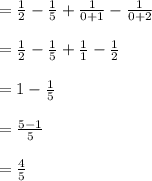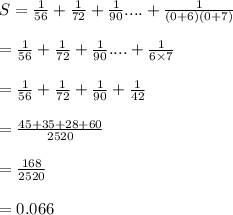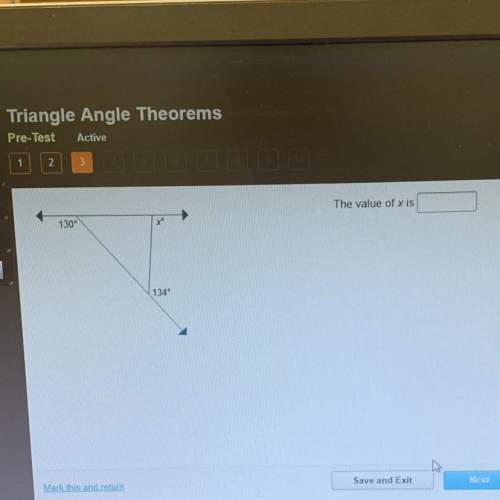
Mathematics, 19.09.2020 01:01, blessednish86orogbi
For the following telescoping series, find a formula for the nth term of the sequence of partial sums {Sn}. Then evaluate limn→[infinity]Sn to obtain the value of the series or state that the series diverges.
1) ∑[infinity]k = 1(1/k + 1 - 1/k + 2).
2) ∑[infinity]k = 1(1/(k + 6)(k + 7).

Answers: 3
Other questions on the subject: Mathematics

Mathematics, 21.06.2019 17:30, chloerodgers56
In a probability experiment, karen flipped a coin 76 times. the coin landed on heads 32 times. what percentage of the coin flips resulted in tails? round to the nearest percent. a. 58% b. 65% c. 42% d. 60%
Answers: 2


Mathematics, 21.06.2019 20:00, gordon57
Someone answer asap for ! max recorded the heights of 500 male humans. he found that the heights were normally distributed around a mean of 177 centimeters. which statements about max’s data must be true? a. the median of max’s data is 250 b. more than half of the data points max recorded were 177 centimeters. c. a data point chosen at random is as likely to be above the mean as it is to be below the mean. d. every height within three standard deviations of the mean is equally likely to be chosen if a data point is selected at random.
Answers: 1
Do you know the correct answer?
For the following telescoping series, find a formula for the nth term of the sequence of partial sum...
Questions in other subjects:



History, 31.07.2019 16:30


History, 31.07.2019 16:30

History, 31.07.2019 16:30


Mathematics, 31.07.2019 16:30




 :
:





























